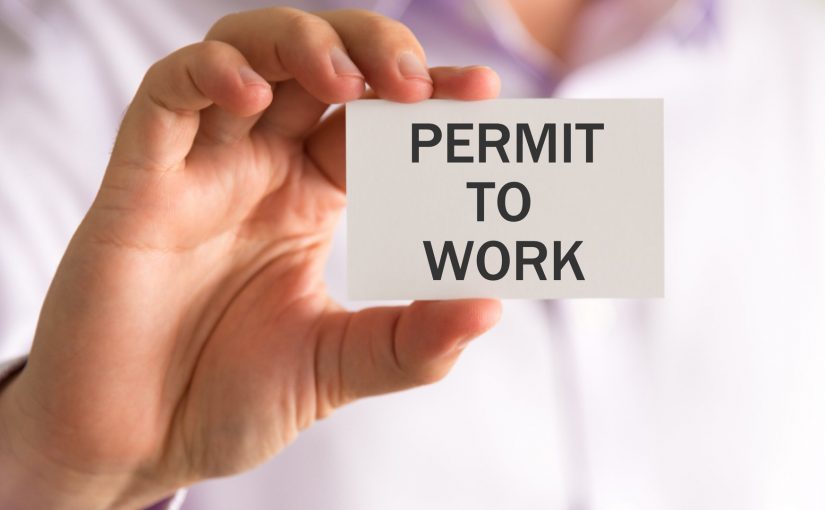Coming to the USA to Live
There are millions of people living in the United States who were not born here. All of these people live in the United States under several different legal categories. Some people are pursuing citizenship, some people are pursuing a good education, and some are pursuing a life free of the dangers of their home country. Whatever the reason someone has landed in the United States, the ability for someone to feed themselves or pay for housing is a big part of living comfortably while residing in the country. To work in the United States without a green card, foreign nationals need to have an EAD card. The EAD card is also known as a work permit, but what is it?
Work Permits
A work permit lets you work legally in a country where you are not a citizen or legal resident. People who have green cards in the United States can legally work, because they are permanent residents. Someone who comes to the United States for a short period (less than permanent residency), then they need a work permit to get a job legally. If you go to a country that isn’t your home country, you enter with several restrictions. In most countries, tourists cannot simply finance their vacation by taking up a quick job along the way. This system helps to make sure taxes are paid and protects local workers’ rights.
The EAD Card
EAD stands for “employment authorization document.” An EAD card is an identification card that makes it easier for employees to know if someone can legally work in the United States. Just like when a police officer pulls someone over and asks for a driver’s license, an employer can ask for an EAD card. It makes the process a lot simpler for everyone. With ID cards, we don’t have to carry around piles of documents to prove we can legally to do things like drive cars or have jobs!
Are You Eligible for an EAD Card?
In order to get an EAD card, you must fall into the following qualifying categories. You are:
- An asylum seeker or the spouse or child of an asylum seeker.
- A citizen of certain countries that qualify.
- A foreign student with active F-1 status who wants to pursue employment or training directly linked to your field of study.
- A student pursuing work off campus due to economic hardship, regardless of your field of study.
- A student with M-1 status seeking practical training related to your vocational training.
- A spouse of an exchange visitor, with some restrictions.
- An eligible dependent of someone on diplomatic missions or someone who works for NATO.
- An employment-based nonimmigrant, with some restrictions.
- A family-based nonimmigrant, with some restrictions.
This list is not comprehensive, and there are other reasons why or why not you may be eligible for an EAD card.
The Steps You Need to Take for an EAD Card
So, you have figured out that you are definitely eligible to get a work permit in the United States. Now, you need to fill out Form I-765. Follow the directions, and make sure you fill out questions 12 and 16 correctly. The instructions will also tell you what documents you need to submit. To submit your application, you need to pay a fee of $380, but the fee can go up so double check how much it is at the time of your application. You can pay by check or money order if you send in your application by mail. Credit cards are accepted if you submit your application online. If you submit your application online, remember that you still need to mail in your supporting documents.
EAD Card Scams
Recently, a Thai man in Rhode Island was caught illegally acquiring EAD cards in a scam he ran out of advertisements in restaurants. His scheme involved filing false asylum applications on behalf of immigrants seeking work permits. He managed to get people EAD cards, but he did it illegally. His customers did not know they were getting illegal documents. This Thai man charged between $1,500 and $2,500 for each EAD card, and according to the court, he will have to give up $285,789.31! That’s a lot of scams!
Get the Right Help
If you qualify for a work permit in the United States and need help getting an EAD card, don’t seek assistance from advertisements you find at Thai restaurants. Instead, Contact Susan B. Henner for experienced and professional legal services.

 Supporting the Fight
Supporting the Fight